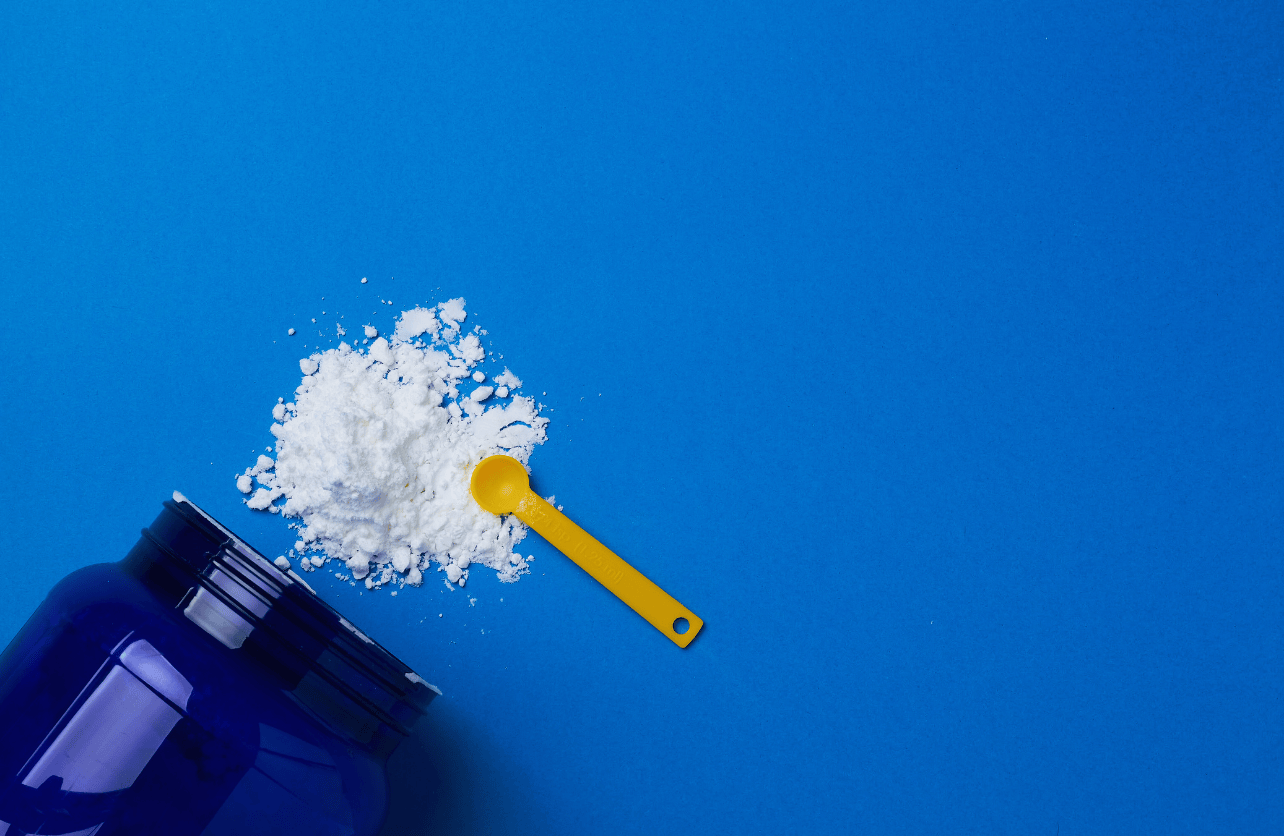Does Creatine Make You Bloated? What’s Actually Happening

Creatine is one of the most widely researched and effective supplements for improving strength, increasing lean muscle mass, and supporting athletic performance. But if you’ve ever started taking it and felt puffier or heavier around the midsection, you’re not alone—and you’re definitely not imagining it. While creatine is not causing “fat” gain, it can lead to bloating in some people, particularly early in supplementation. So what’s really going on?
What Causes Creatine Bloating?
The word “bloating” is used frequently, but not always accurately. When people talk about bloating from creatine, they usually refer to one of two things: water retention or gastrointestinal (GI) discomfort. Both are real, but they result from different processes.
1. Water Retention Inside Muscle Cells
This is the most common and physiologically normal effect of creatine. When you supplement with creatine, your muscles store more of it, along with extra water. That’s because creatine is an osmotically active compound, meaning it pulls water into the muscle cells with it.
So, yes, your body is technically holding onto more water. But it’s not the kind of bloating where you feel gassy or inflamed. It’s intracellular—inside your muscles—which is actually a good thing if you’re trying to build strength or size. The result might be that you look or feel a bit fuller, especially during the first week of use.
When Bloating Feels Uncomfortable
The problem usually arises during the loading phase, where people take 20–25 grams of creatine per day for 5–7 days to saturate their muscles quickly. At that dose, the sudden influx of creatine and the accompanying water can cause you to feel heavier, puffier, or slightly swollen. For some, this can be minor and unnoticeable. For others, especially those sensitive to changes in water balance, it can feel like uncomfortable bloating.
In a small percentage of people, high doses of creatine can also cause GI distress—things like stomach cramping, gas, or even diarrhea. This isn’t due to the creatine itself being “bad,” but more likely due to the volume being too much for your gut to absorb all at once.
How to Avoid Creatine Bloating
If you’re experiencing bloating from creatine or are hesitant to start because of it, here are several practical ways to minimize or avoid it entirely:
1. Skip the Loading Phase
Instead of front-loading with 20+ grams, just start with a maintenance dose of 3–5 grams per day.
Your muscles will still reach full saturation—it will just take a few weeks instead of a few days.
This slower approach dramatically reduces the chances of water retention or digestive issues.
2. Stay Hydrated
Creatine draws water into your muscles, so if you’re not drinking enough fluids, the shift in water balance can lead to bloating or mild dehydration.
Drink at least 2–3 liters of water a day, more if you’re training intensely.
3. Watch Your Sodium Intake
While creatine causes water to be stored inside your muscles, excess sodium can lead to subcutaneous water retention—right under the skin—which may contribute to a “puffy” feeling.
You don’t need to eliminate salt, just avoid going overboard with processed or overly salty foods while adjusting to creatine.
4. Choose High-Quality Creatine Monohydrate
Cheap or impure creatine powders may contain fillers or poor-grade ingredients that upset your stomach.
Stick with creatine monohydrate, which is the most studied and effective form—preferably Creapure® or any product with third-party testing.
Does This Mean Creatine Makes You Fat?
Not at all. The scale might jump by 2–5 pounds during the first week, but this is mostly water weight, and specifically, water being stored in your muscles. It’s not fat gain, and it won’t affect body composition negatively. In fact, that added water can support muscle recovery, cell volume, and training output.
If your physique looks a bit softer initially, don’t panic. Once your body adjusts, most of that “bloat” appearance fades, especially if you’re training hard and eating well.
So, Should You Worry?
In most cases, creatine-related bloating is temporary, minor, and manageable. Many people don’t experience it at all, especially if they take a gradual approach with lower doses. Even when it does happen, it’s usually just water shifting into the muscle cells, not the unpleasant gut bloating you might associate with a bad meal or food intolerance.
The key is knowing your own body and adjusting your dosage, hydration, and expectations accordingly.
Summing Up
Creatine doesn’t inherently “make you bloated,” but it can cause temporary water retention or stomach discomfort, especially if you jump in too fast. Most of the concerns around creatine and bloating are rooted in misunderstanding—either of how creatine works or of what “bloating” actually is.
Start slow, stay consistent, and don’t be afraid of a little extra water in the muscles. It’s not a drawback—it’s part of the process.
Building a Stronger You
Supplement Institute is the fruit of extensive online publishing experience, spanning the breadth of SEO strategies to the nuances of paid advertisements. Our journey, marked by significant achievements and learning moments, inspires our core mission: to empower our readers with an abundance of information. By sharing insights and key learnings, we aim to provide you with the knowledge needed to navigate the complex world of supplements, helping you make well-informed decisions for your health and well-being. Welcome to Supplement Institute, where information is your greatest supplement.